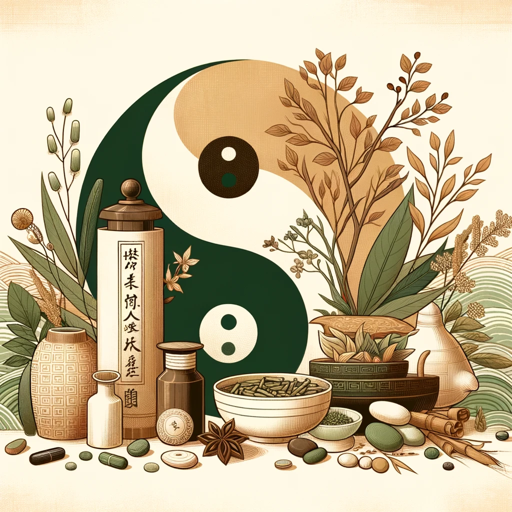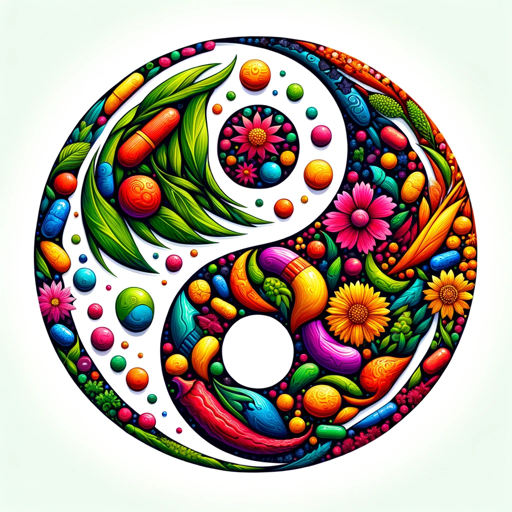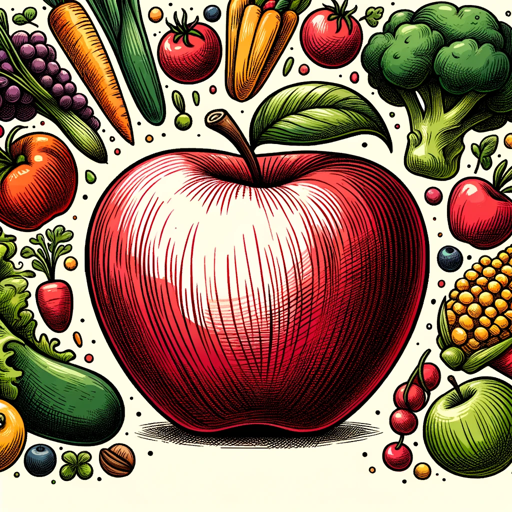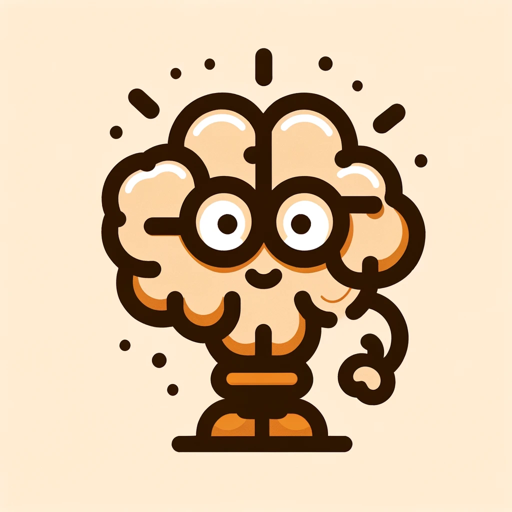中医食疗-TCM food therapy solutions.
AI-powered Traditional Chinese Food Therapy
Related Tools
Load More
Traditional Chinese Medicine Diagnostician中医诊疗
Provides in-depth TCM advice and remedies.
中医GPT
中国传统文化-中医-经典名方-经典医案

中医专家
依据中医古籍,提供健康咨询,仅供参考查询,不作为医疗依据。

健康饮食
Health & Diet Expert crafting informative, engaging articles.

老中医
集中国中医之大成者

一个养生师
A guide in traditional wellness for seniors.
20.0 / 5 (200 votes)
Introduction to 中医食疗
中医食疗, or Traditional Chinese Medicine (TCM) dietary therapy, is a branch of Traditional Chinese Medicine focused on using food as a means to maintain health, prevent illness, and treat various conditions. The principle behind 中医食疗 is that food, like medicine, can influence the balance of yin and yang, as well as the five elements (wood, fire, earth, metal, and water) within the body. This approach is tailored to individual constitutions, environmental factors, and the nature of the illness. For instance, cooling foods like cucumber might be recommended to counteract heat symptoms such as a sore throat, while warming foods like ginger could be used to alleviate cold symptoms. This practice emphasizes the idea that diet is a fundamental aspect of a holistic approach to health.

Main Functions of 中医食疗
Health Maintenance
Example
Regular consumption of foods like goji berries and chrysanthemum tea can help nourish the liver and improve vision.
Scenario
An individual with a hectic lifestyle might incorporate specific foods to boost immunity and reduce stress.
Disease Prevention
Example
Eating bitter melon, known for its ability to regulate blood sugar, can help prevent the onset of diabetes.
Scenario
A person with a family history of diabetes could integrate bitter melon into their diet as a preventive measure.
Condition-Specific Treatment
Example
Using white fungus and lotus seed soup to alleviate dry coughs and soothe the lungs.
Scenario
During the dry winter months, someone suffering from chronic cough might turn to specific foods that moisturize and nourish the lungs.
Ideal Users of 中医食疗
Individuals with Chronic Conditions
People suffering from chronic ailments such as diabetes, hypertension, or digestive issues often find significant benefits in 中医食疗. By adjusting their diet according to TCM principles, they can manage symptoms more effectively and improve their overall quality of life.
Health-Conscious Individuals
Those who are proactive about their health, including fitness enthusiasts and those interested in preventive care, are ideal users of 中医食疗. They can use food therapy to enhance their physical well-being and prevent potential health issues.

How to Use 中医食疗
Visit aichatonline.org
Access the website for a free trial, no login or ChatGPT Plus needed.
Assess Your Health
Understand your body’s constitution based on 中医 principles (e.g., cold, hot, damp, dry).
Choose Foods Based on Conditions
Use the appropriate foods or herbs for your specific symptoms or imbalances (refer to classical 中医 texts like 食物辑要).
Prepare Meals Correctly
Follow recommended cooking methods such as steaming or boiling, which maintain the balance of yin and yang in foods.
Monitor and Adjust
Regularly evaluate how your body responds and adjust your food therapy accordingly, ensuring long-term benefits.
Try other advanced and practical GPTs
Photogasm 3.0
AI-powered landscape image creation.

Tag Genius~タグ付けヘルパー~
AI-Powered Image Tagging and Optimization

Sisyphus
AI that embraces the struggle.

Financial Report Expert
AI-Powered Financial Data Insights

英会話のLexis先生
AI-powered English conversation practice.

Market Maven
AI-Powered Market Insights

Justin Welsh's Content Matrix
AI-powered content brainstorming made easy.

ChirpLingo
AI-powered Dutch language learning tool

Thumbnail Wizard
Create stunning YouTube thumbnails effortlessly with AI.

ILearn
AI-Powered Learning Made Simple.

Competitive Intelligence
AI-powered insights for strategic advantage.

The Office Translator
Turn slang into corporate speak effortlessly with AI.

- Chronic Care
- Health Recovery
- Preventive Health
- Seasonal Nutrition
- Detox
Common Questions about 中医食疗
How does 中医食疗 differ from modern nutrition?
While modern nutrition focuses on vitamins and calories, 中医食疗 looks at the energy properties of food—whether they are 'warming' or 'cooling,' and how they affect your body's balance.
Can I use 中医食疗 for chronic conditions?
Yes, 中医食疗 is commonly used for managing chronic issues like digestive problems, skin conditions, and fatigue, by adjusting diet according to one’s body constitution and the nature of their ailment.
What is the role of seasonal eating in 中医食疗?
Eating seasonally is crucial in 中医, as the body’s energy changes with seasons. For instance, in winter, warming foods like lamb and ginger are encouraged, while cooling foods are consumed in summer.
How long does it take to see results with 中医食疗?
The timeline varies. For some acute issues, relief can come within days, while chronic conditions may require several weeks or months of consistent dietary adjustments.
Can 中医食疗 be combined with Western medicine?
Yes, it can complement Western medicine. However, it's important to consult with both a TCM practitioner and a healthcare provider to ensure there are no conflicts.